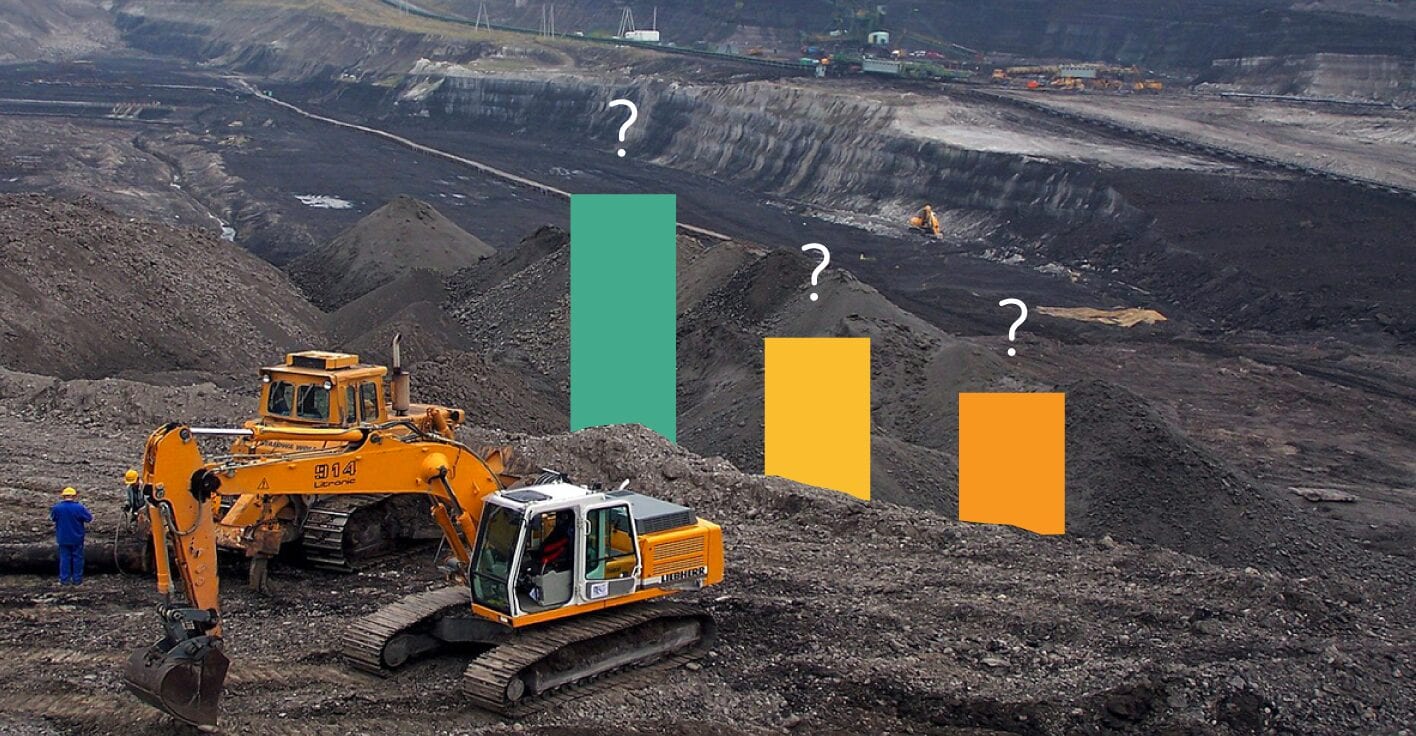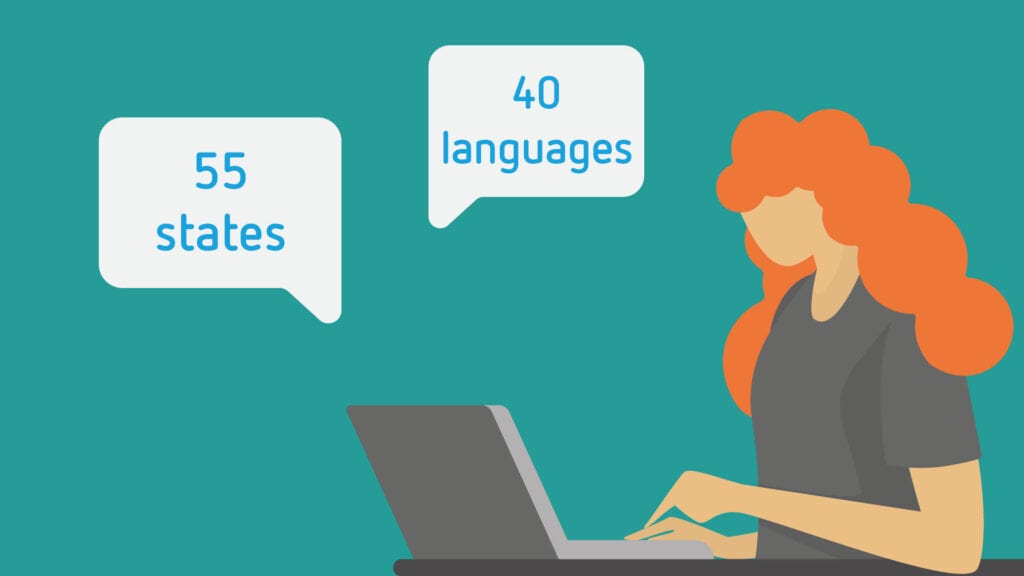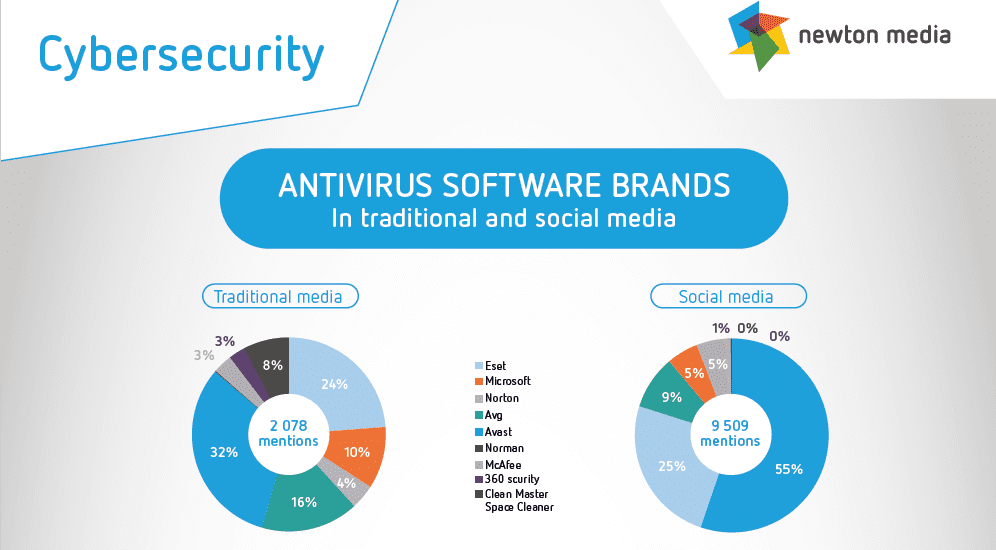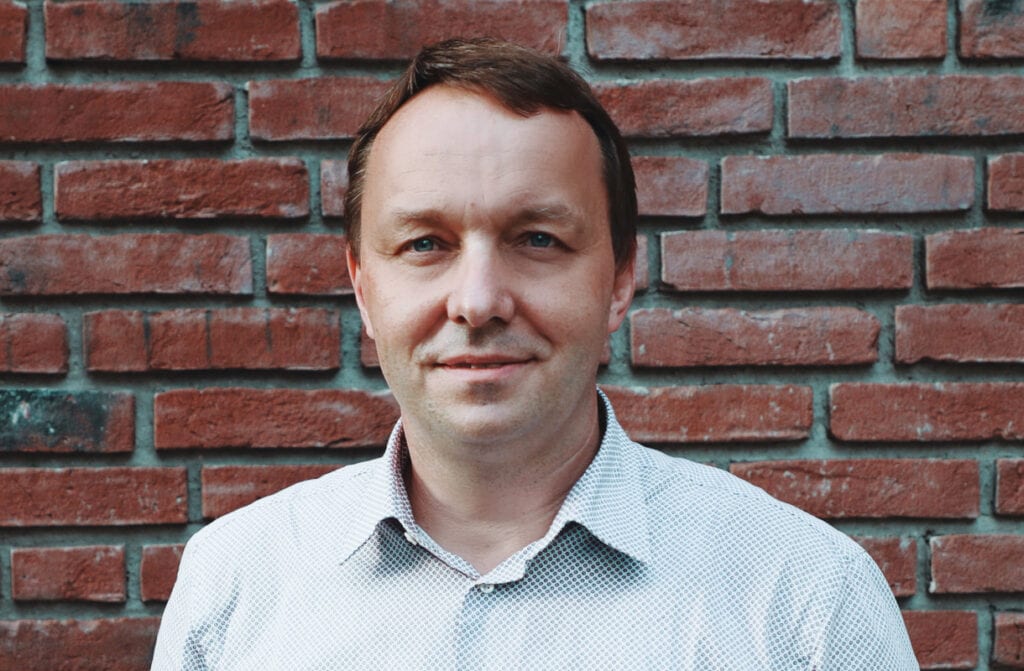In recent months, Czech-Polish relations have been significantly disrupted by the dispute over the brown coal mine Turów in Poland. Although Polish media initially paid little attention to the case, they have given the dispute four times more space than the Czech media since the Czech lawsuit was filed with the European Court of Justice. As the detailed media analysis of Newton Media shows, the coverage of the dispute increased both in foreign and Czech media thanks to the governor of Liberec, Martin Půta, who is noticed by journalists significantly more than any other local politician in Poland or Germany. Representatives of the mining company Polska Grupa Energetyczna (PGE) are given the most space in the Polish media, arguing that the threat to employment and the loss of energy security of the whole of Poland will occur.
For a long time, Polish media have shown relatively lukewarm interest in the Turów case. When the first meeting on Turów took place in August 2019 between Andrej Babiš, Richard Brabec, and their Polish counterparts Mateusz Morawiecki and Michał Kurtyka, Polish media paid the debate only a third of the attention Czech media did. The turning point came in February this year when the Czech Republic sued Poland at the European Court of Justice. Since then, Polish media have paid four times more attention to the case than Czech media. On the other hand, German media consistently show the lowest interest of all three countries concerned.
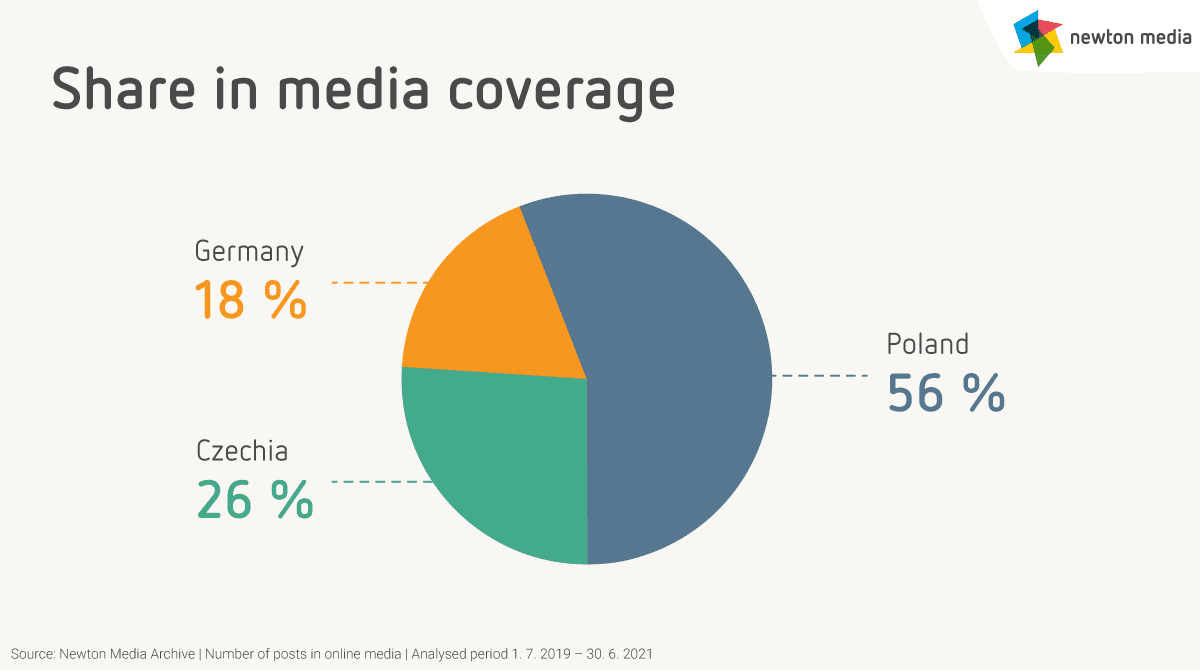
Polish and Czech media seem to report on two different mines. “In Polish titles, arguments prevail about the Turów mine and power plant as the largest employers of enormous importance for the energy security of the whole country. Among the reasons for the suspension of mining activities is the most frequently mentioned negative impact on the state of groundwater, but with the addition that everything will be solved by the construction of an underground filter wall,” says Dan Weidenhoffer, an analyst at Newton Media and adds: “On the other hand, the argumentation in Czech media significantly emphasized the impacts on the environment, which are the loss of groundwater and the increase in noise and dust. German titles, which present the case as a primarily Czech-Polish conflict, maintained certain impartiality.”
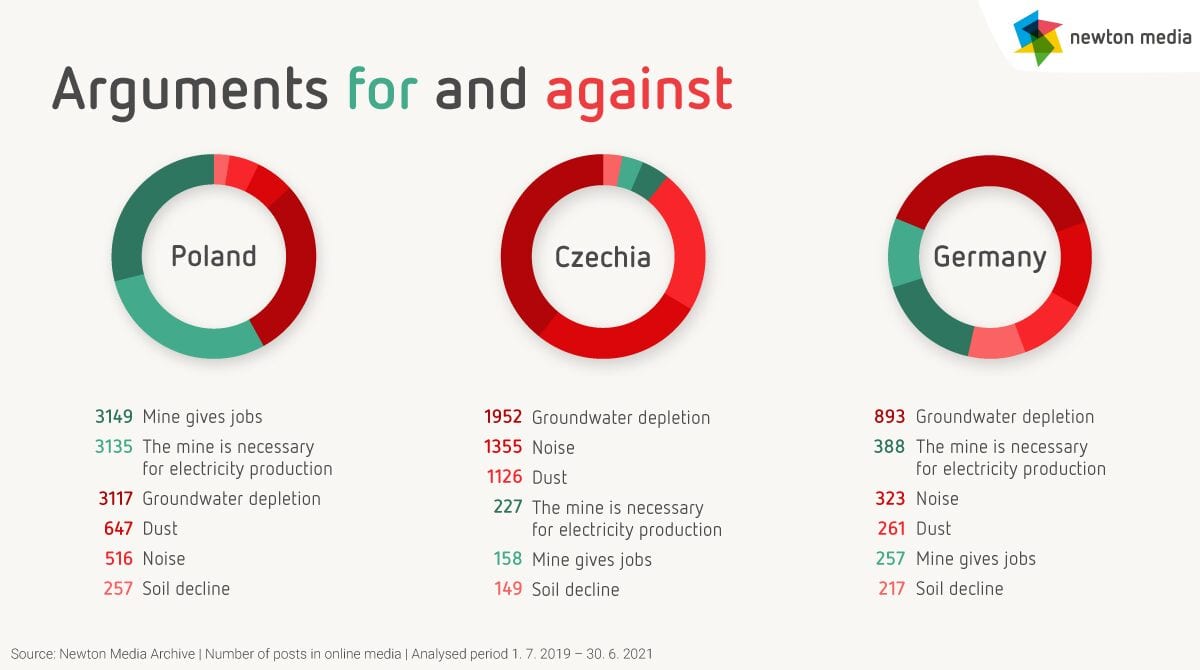
The media department of the Polska Grupa Energetyczna (PGE) concern was the most active media player in Poland in connection with the Turów mine. Representatives of the concern jointly dominate in the Polish media over all other stakeholders except for Minister of Environment Michał Kurtyka. PGE officials appeared in the media eight times more often than the most quoted local politician, the mayor of polish town Bogatyna. Apart from Czech Minister of Environment, Richard Brabec, and the Governor of the Liberec region, Martin Půta, the Polish media pay most attention to Milan Starec, a resident of the Uhelná village. The number of his mentions in Polish and German media is several times higher than, for example, of MEP Tomáš Zdechovský, who is also involved in the case.
Martin Půta, already mentioned above, did a great job to make the Turów case more visible. “Although the inhabitants of Uhelná, Oldřichov or Hrádek nad Nisou municipalities blame the leadership of the Liberec Region for inconsistency in defending their interests, the voice of Governor Půta was heard in the Polish media quite often, even more than the voices of his Polish counterparts of the Lower Silesia. Půta is also the most quoted local politician in the German media, where only the mayor of Zittau is mentioned in connection with the Turów mine more often,” adds Weidenhoffer.
Polish trade unionists were involved in the media rather sporadically. Their voice was first heard in June 2020, when they joined a petition organized by the PGE Group and Polish MEP Anna Zalewska. On the contrary, Polish, and Czech ecologists have been involved in the media coverage of the Turów case from the very beginning. Jakub Gogolewski from the Polish organization „Rozwój TAK – Odkrywki NIE“ significantly overshadowed the trade unionists when he accused the Polish authorities of falsifying permits to expand mining in January 2020. Among the Czech activists, the most visible in the media were Nikol Krejčová, coordinator of the coal campaign of Greenpeace CR, and Petra Urbanová, lawyer of Frank Bold organization.
Significant differences were in the attention to the impacts on specific municipalities and places paid by the media of the three countries concerned. German outlets unilaterally dealt mainly with Saxon Zittau, to a lesser extent with the Polish Bogatyna, but only marginally mentioned the directly endangered Czech village Uhelná. The Polish media showed a little more foreign overlap when, surprisingly, dealing with the village of Uhelná with 500 inhabitants in the same extent as Zittau with 25,000 inhabitants. The Czech media was the fairest, dividing their attention almost evenly between German Zittau, Polish Bogatyna, and Czech Frýdlant and Uhelná.
The analysis covered online media (news servers, Twitter, Tumblr, blogs, discussion forums, reviews) in the period 1.7.2019 – 30.6.2021 in Poland, Czech Republic, and Germany, and for comparison also in the UK, Italy, Slovakia, Spain, and Austria.
Author of the analysis: Daniel Weidenhoffer
Media contact: Jitka Adamčíková, phone.: 605 441 267, e-mail: Jitka.Adamcikova@newtonmedia.cz
